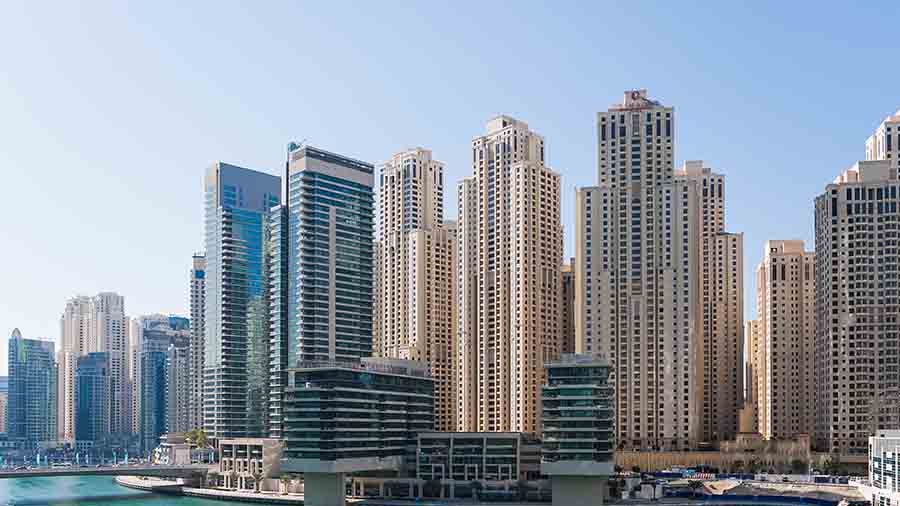For businesses operating in the UAE, customs duties and import-export obligations are not only affect profit margins but also play a critical role in pricing strategies, operational costs, and compliance with local regulations.
As of January 1, 2023, Dubai Customs lowered the threshold for duty-free shipments from AED 970 to AED 300. This policy applies to goods imported via courier services and reflects a more stringent approach to customs regulation. Exceptions include consignments such as printed materials, visually impaired leaflets, and mail, which remain duty-exempt, regardless of their value.
Additionally, products like tobacco, e-cigarettes, alcoholic beverages, and alcohol-containing foods remain subject to duties without any minimum threshold.
The reduction in the duty-free threshold has direct implications for businesses and consumers alike. Courier companies, for instance, face increased costs due to the requirement to pay customs duties on shipments exceeding AED 300. For consumers, the policy change may alter purchasing habits, particularly for smaller, higher-value items that now incur duties.
Understanding customs duties
Customs duties are tariffs imposed by governments on goods transported across international borders, either as imports or exports. These duties are a vital component of trade regulation, aimed at generating revenue, protecting local industries, and regulating the flow of restricted goods. In the UAE, customs duties primarily apply to imported goods and are calculated based on the Cost, Insurance, and Freight (CIF) value of the shipment.
General customs duty rate
The UAE adheres to a unified customs tariff system as a member of the Gulf Cooperation Council (GCC). Under this framework, the standard customs duty rate is 5 percent of the CIF value. This general rate covers the majority of goods entering the country, including electronics, clothing, and household items. Importers must accurately classify their goods using the internationally recognized Harmonized System (HS) codes, as these determine the duty rate applied.
While the general duty rate is 5 percent, some goods attract significantly higher tariffs due to their nature or societal impact:
- Alcohol: Subject to a customs duty of 50 percent of the CIF value, reflecting government efforts to regulate alcohol consumption and generate revenue from its trade.
- Tobacco Products: Incurring a customs duty of 100 percent, this high rate is part of broader public health policies aimed at reducing tobacco use in the population.
Certain categories of goods are exempt from customs duties altogether. Essential items like fresh produce, grains, and medical supplies benefit from a 0 percent customs duty rate, supporting affordability and public welfare. Additionally, goods imported into UAE free zones, or those originating from countries with Free Trade Agreements (FTAs) with the UAE, may also qualify for reduced or exempted duties. Examples of such agreements include partnerships with countries like India, Indonesia, and Israel, enhancing the UAE’s position as a global trading hub.
Businesses importing goods into the UAE must ensure strict compliance with customs regulations. This involves registering with the relevant emirate’s customs authority, declaring the value and origin of goods, and obtaining the necessary customs clearance. Companies may also need to secure a warehouse license for storing goods under customs supervision without immediately paying duties, providing flexibility for re-export operations.
Types of goods and their duty rates
Duty rates vary significantly depending on the type of goods imported into the UAE, with some enjoying exemptions while others attract standard or higher rates. Below, we provide an overview of common categories and their corresponding duty rates.
The standard customs duty in the UAE is 5 percent of the CIF value (Cost, Insurance, and Freight) of most imported goods. This rate applies broadly to general cargo, including:
- Mobile phones, computers, and other devices.
- Everyday wear and high-fashion items.
- Furniture, kitchenware, and similar products.
Businesses must classify goods accurately under the Harmonized System (HS) Code to ensure proper duty calculation. Errors in classification can result in penalties or delays.
List of common goods and their corresponding duty rates
Certain goods enjoy either reduced or zero-duty rates, reflecting government priorities:
- Livestock, meat, and seafood exempt from duties (0%) to support food security.
- Items like vegetables, fruits, coffee, grains, and seeds also benefit from a 0% duty rate.
- Medicines, vaccines, and health supplements are often duty-free to promote public health.
- Books and select stationery items enjoy exemptions to support education.
For these categories, exemptions help keep prices affordable and ensure availability for consumers.
Higher duty rates
Certain goods, however, are subject to much higher customs duties, often reflecting government policies aimed at controlling consumption or protecting local industries:
Alcoholic beverages
Alcohol imports are taxed at 50 percent of their CIF value. This steep rate reflects regulatory efforts to moderate consumption in line with cultural considerations.
Tobacco products
Tobacco and its derivatives attract a hefty 100 percent duty. This aligns with public health initiatives to reduce smoking and its associated health risks.
Cement and construction materials
Cement, hydraulic cement, and other construction-related materials are critical for infrastructure projects. To protect local manufacturers and discourage unnecessary imports, these items often face anti-dumping duties. For instance, some imports of hydraulic cement from select countries may attract an anti-dumping duty of up to 67.5 percent of the CIF value. This rate ensures a competitive edge for domestic producers while safeguarding against unfair trade practices.
Paints and coatings
Paints, varnishes, and industrial coatings are essential for construction and manufacturing sectors. These items typically attract a customs duty rate of 5 percent. However, specialty coatings, such as those with advanced chemical formulations, might qualify for exemptions or varying rates depending on their intended use and specific HS Code classification.
Ceramic and porcelain tiles
Ceramic and porcelain tiles are subject to customs duties to regulate the influx of imports and protect local industries. These goods are often subject to anti-dumping measures, with rates depending on the country of origin and the HS Code. The anti-dumping duties for tiles from certain regions can significantly exceed the standard 5 percent duty, with rates in some cases reaching 20-50 percent of CIF value.
Batteries and electrical components
Car batteries and other industrial batteries are subject to varying duty rates. While some may attract the standard 5 percent duty, imports identified under anti-dumping regulations, such as certain batteries from specific exporting nations, can incur additional duties of 20-30 percent. The rates reflect efforts to bolster the local battery manufacturing industry and ensure environmental safety.
Chemicals and gases
Industrial chemicals and gases used in manufacturing, agriculture, or healthcare sectors often fall under specialized duty regulations. While essential chemicals for public health (e.g., medical oxygen, vaccines) may enjoy a 0 percent duty rate, others, such as industrial solvents or certain pesticides, are taxed at 5 percent or more. Some hazardous chemicals face stricter controls and higher duty rates due to their potential environmental impact.
Machinery and equipment
Industrial machinery and equipment, a cornerstone of manufacturing and construction, generally attract a 5 percent customs duty. However, advanced or specialized machinery used in sectors such as energy, aviation, or medical technology may qualify for exemptions or reduced rates to encourage technological advancement and infrastructure development.
Textiles and apparel
Raw textile materials and semi-finished goods, such as yarns and fabrics, attract the standard 5 percent duty rate, supporting the UAE’s burgeoning textile industry. However, finished apparel products may face higher duties, especially if imported from non-GCC countries, to promote local manufacturing.
Other specific categories
|
Category |
Sub-Category |
Customs Duty Rate |
Notes |
|
Plastics and Polymer Products |
Raw Plastics (Polyethylene, Polypropylene) |
5% |
Encourages import for manufacturing. |
|
Finished Products (bags, containers) |
5-10% |
Higher duties to promote local production. |
|
|
Recyclable and Specialty Plastics |
0-5% |
Reduced duties for sustainable/environmentally friendly imports. |
|
|
Metals and Metal Products |
Raw Metals (Iron, Aluminum, Copper) |
5% |
Unprocessed metals for industrial use. |
|
Semi-Finished Metal Products (rods, sheets) |
5% |
Standard duty applies. |
|
|
Finished Metal Products (tools, decor) |
5-15% |
Encourages local manufacturing by taxing finished items. |
|
|
Automotive and Transport Equipment |
Automobile Components (engines, brakes) |
5% |
Standard duty rate for parts. |
|
Commercial Vehicles (trucks, buses) |
5% |
General rate; EVs may qualify for exemptions. |
|
|
Specialized Transport Equipment (machinery) |
0-5% |
Some equipment may qualify for reduced duties. |
|
|
Paper, Pulp, and Printing Materials |
Raw Pulp and Unprocessed Paper |
0-5% |
Supports local industries in printing and packaging. |
|
Printed Paper and Packaging Materials |
5% |
Encourages domestic production of finished items. |
|
|
Specialty Papers |
5-10% |
Higher rates reflect added value. |
|
|
Industrial Electronics |
Raw Electronic Components (transistors, PCBs) |
5% |
Supports assembly industries. |
|
Finished Electronic Devices (robots, systems) |
5% |
Advanced equipment in strategic sectors may qualify for exemptions. |
|
|
Telecommunication Equipment (satellites) |
0-5% |
Reduced duties align with technology development goals. |
|
|
Food Processing and Agricultural Equipment |
Agricultural Machinery (tractors, irrigation) |
0-5% |
Essential for supporting agriculture and food security. |
|
Food Processing Equipment |
5% |
General rate for machinery used in food industries. |
|
|
Renewable Energy Equipment |
Solar Panels and Components |
0-1% |
Promotes renewable energy adoption. |
|
Wind Turbines and Accessories |
Exempt |
Encourages sustainability initiatives. |
|
|
Energy Storage Systems (industrial batteries) |
0-5% |
Reduced duty rates for green energy systems. |
|
|
Medical and Healthcare Equipment |
Diagnostic and Laboratory Equipment |
Exempt |
Duty-free to support healthcare infrastructure. |
|
Medical Devices (surgical tools, imaging) |
Exempt |
Enhances accessibility to critical medical technology. |
|
|
Pharmaceutical Manufacturing Equipment |
Exempt |
Supports local drug production efforts. |
|
|
Textile Machinery and Equipment |
Spinning and Weaving Machines |
0-5% |
Duty-free or reduced rates to support textile industries. |
|
Dyeing and Finishing Equipment |
0-5% |
Encourages domestic textile production. |
|
|
Parts and Accessories |
5% |
Standard duty rate for replacement parts. |
|
|
High-Value Luxury Goods |
Precious Metals (gold, silver - raw) |
Exempt |
Raw materials for jewelry and luxury goods are duty-free. |
|
Finished Luxury Products (watches, tools) |
5% |
Reflects commercial and niche industrial demands. |
Exemptions from customs duties
Several specific categories of goods benefit from customs exemptions in the UAE. These include:
- Personal belongings, used household items, and second-hand goods are exempt from customs duties when brought into the UAE by residents or foreigners establishing residence. These exemptions are subject to conditions, such as providing proof of residence abroad (for nationals returning) or within the UAE (for expatriates arriving), ensuring that the items are used rather than new, and not for resale. Travelers entering the UAE can also bring personal items like clothes, toiletries, laptops, and portable devices without incurring customs duties. Additionally, passengers are allowed to carry limited quantities of specific goods, such as:
- Cigarettes and Tobacco: Up to 200 cigarettes, 50 cigars, or 500 grams of tobacco.
- Alcohol: Up to 4 liters of alcoholic beverages or two cartons of beer (each containing 24 cans).
- Certain goods, such as those included under the World Customs Organization’s Approved Focal Point Program or supplied by national factories, are duty-free to support economic competitiveness.
- Goods exported from the UAE to other countries are exempt from customs duties.
- Shipments originating from national factories are considered duty-free under industrial exemptions. Factories can import machinery, raw materials, and intermediate goods required for production without paying customs duties, significantly reducing operational costs.
- The UAE grants exemptions to imports destined for diplomatic missions, embassies, and consulates, as well as military bodies and contractors.
- Under the Gulf Cooperation Council (GCC) agreement, goods originating in GCC member states are treated as UAE local goods and are exempt from customs duties. However, this exemption is conditional upon presenting a valid certificate of origin and meeting the stipulated percentage of raw materials sourced within GCC countries.
Customs procedures for importing goods
Below are the critical components and steps involved:
Step 1: Registration requirements for businesses
To import goods into the UAE, businesses must first be registered with the relevant authorities. This includes obtaining a valid trade license and registering with the Federal Tax Authority (FTA) for a Tax Registration Number (TRN), if applicable. Companies involved in international trade must also acquire an import/export license issued by their local economic department.
Step 2: Documentation needed for customs clearance
Proper documentation is crucial to streamline the customs clearance process. The primary documents required include:
- Details the transaction between the buyer and seller, including information about the goods, their value, and terms of sale.
- Certifies the manufacturing country of the goods and helps determine applicable duties or preferential tariffs under trade agreements.
- A mandatory submission outlining shipment details for customs review.
- Provides a breakdown of the shipment’s contents, including weight, dimensions, and descriptions, aiding customs inspection.
Additional documents, such as import permits or certificates, may be required based on the nature of the goods (e.g., pharmaceuticals, food products).
Step 3: Special codes and permissions
Customs authorities assign special codes to goods for classification under the Harmonized System (HS) Code, a global standard used for identifying products in trade. Accurate classification is critical for determining duty rates and compliance with import regulations.
Some goods may require prior approval or permissions, such as:
- Dangerous Goods: Must adhere to safety regulations and often require permits.
- Restricted Items: Importing firearms, controlled chemicals, or other sensitive goods may necessitate specific licenses from relevant authorities.
- Exemptions: Goods eligible for exemptions, such as those from national factories or GCC countries with certificates of origin, must present supporting documentation.
Step 4: Role of additional services
The UAE offers various customs-related services to facilitate the import process. Importers can request technical guidance on matters like tariffs, valuation, or regulatory restrictions. Businesses can apply to amend or cancel a customs declaration if needed.
Many businesses delegate import procedures to licensed customs brokers, providing them with a Power of Attorney. This delegation streamlines compliance and ensures timely clearance.
Step 5: Compliance and digital solutions
Modern customs authorities in the UAE, such as Dubai Customs, leverage advanced digital platforms for efficient processing. Importers can use online portals or apps to:
- Declare shipments electronically.
- Track shipment status.
- Pay duties and taxes securely.
Passengers entering the UAE are also required to declare cash, precious metals, or stones valued over AED 60,000.
Import restrictions and prohibited items
The UAE enforces strict regulations regarding the importation of goods, maintaining high standards of safety, public morality, and environmental protection. Below is an overview of prohibited and restricted items, including recent updates to import regulations.
Prohibited items
Certain items are outright banned from entering the UAE due to cultural, health, or security concerns. These include:
- The UAE has a zero-tolerance policy toward narcotics, including substances like heroin, cocaine, cannabis, methamphetamines, and certain prescription drugs without valid prescriptions.
- All gambling-related items such as slot machines, gambling tables, and gaming equipment are strictly prohibited due to the country's laws on gambling.
- The importation of counterfeit products, including fake clothing, electronics, software, and media, is illegal. This is part of the UAE’s efforts to protect intellectual property rights.
- Objects used for witchcraft or black magic, such as talismans or potions, are banned due to religious and cultural sensitivities.
- The import of items made from endangered animals, such as ivory or rhinoceroses' horns, is prohibited in alignment with international conservation efforts, including the CITES agreement.
Other banned items include certain types of fishing nets, reconditioned tires, radioactive materials, and culturally inappropriate publications.
Restricted items
In addition to the outright prohibited goods, some items are allowed to be imported only under specific conditions or with prior approval from relevant authorities. These restricted goods include:
- Importing certain live animals, plants, and related products such as fertilizers and pesticides requires approval from the Ministry of Climate Change and Environment.
- Firearms, explosives, and fireworks are restricted, and their importation requires authorization from the Ministry of Defence or Ministry of Interior.
- Importing certain pharmaceutical products, medical devices, and related tools requires approval from the Ministry of Health and Prevention to ensure compliance with safety standards.
- Alcohol is permitted under strict regulation, requiring approval from the Ministry of Interior or local police departments.
- While the importation of e-cigarettes and electronic hookahs is legal, it is subject to specific guidelines and must be approved by the Ministry of Industry and Advanced Technology.
In addition, goods like nuclear-related products, rough diamonds, and transmitters also face import restrictions.
The UAE’s import policies are subject to periodic updates to reflect changes in domestic regulations and global trade dynamics. For example, recent temporary suspensions include:
- Electric Volkswagen cars: A temporary ban on importing and registering electric Volkswagen cars was imposed in 2023 due to safety and regulatory concerns.
- Ferrous scrap and wastepaper: Export and re-export of ferrous scrap and wastepaper have been suspended to address local supply chain issues and environmental regulations.
- Wheat and wheat flour: A suspension on the export and re-export of wheat and wheat flour was enacted to stabilize food security and supply in the region.
These temporary suspensions highlight the UAE's proactive approach in managing import policies to ensure national security, public health, and economic stability.
Compliance and enforcement
The UAE's customs authorities maintain a robust inspection system to ensure that all imported goods comply with the relevant laws. Imports are subjected to both internal and external inspections, which can take place at the port or the importer’s warehouse. Customs officers verify the accuracy of documentation and inspect shipments to ensure compliance with the regulations.
In addition to inspections, businesses and individuals must be aware of penalties for violations. Fines for incorrect declarations or late submission of documents can range from AED 50 to AED 500, depending on the nature of the violation. More serious violations, such as importing prohibited goods, can lead to heavy fines or even imprisonment.
Import-export taxes beyond customs duties
In addition to customs duties, the UAE imposes a Value Added Tax (VAT) on most goods and services, which significantly impacts import-export activities. The standard VAT rate in the UAE is 5 percent, one of the lowest rates in the region. This tax is applied to goods and services at every stage of the supply chain, with the final consumer bearing the cost.
When it comes to imported goods, VAT is applied at the point of entry into the UAE. This means that businesses and individuals importing goods into the country must pay VAT in addition to any customs duties that may be applicable. The VAT on imports is generally recoverable by businesses registered for VAT under the reverse charge mechanism, which allows them to reclaim VAT paid on imported goods as input tax, subject to specific conditions.
For exports, the UAE offers favorable tax treatment. Goods and services that are exported outside the UAE are typically exempt from VAT. This means that exported goods are subject to a zero-rate VAT, allowing businesses to recover VAT on their inputs, such as raw materials or services used in the production of export goods. This exemption ensures that UAE businesses remain competitive in international markets by not being burdened with VAT on exported products.
Certain sectors and products are also exempt from VAT, such as healthcare services, educational services, and some financial services, in line with the government’s aim to support essential sectors. Businesses involved in these areas should be aware of the specific regulations governing VAT exemptions and ensure compliance with the requirements for both imports and exports.
Excise taxes in the UAE
The United Arab Emirates introduced an excise tax on tobacco and tobacco products, carbonated beverages, and energy drinks on October 1, 2017. This tax was expanded on December 1, 2019, to include sweetened drinks, electronic smoking devices and accessories, as well as liquids used in these devices. The tax rates are 100 percent on tobacco products, electronic smoking devices and accessories, liquids for these devices, and energy drinks, while carbonated and sweetened beverages are taxed at a rate of 50 percent.











